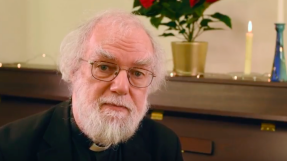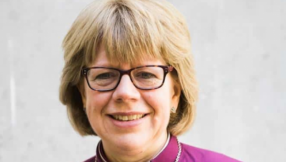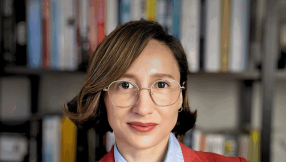Friends of mine, Catholic-minded Anglicans, are at the moment getting very exercised about current proposals for Anglican-Methodist reconciliation in England. The problem for them seems to be that as a result of the scheme, which eventually involves all Methodist ministers as well as Anglicans being ordained by a bishop in 'apostolic succession', there will meanwhile be ministers celebrating the eucharist who are not so ordained.
The point of worry seems to be a break in a succession of hands in ordination from the apostles who were the first followers of Christ. That strikes me as a professional historian of the Church (and also in Anglican orders) to be a very unrealistic view of Christian history.
First, 'the historic episcopate' throughout the Christian world is a pragmatic, gradual creation of the second century CE, which links with the first apostles, but does not do so exclusively. There was no single bishop of Rome, for instance, until the 2nd century, and earlier lines of single succession there are benevolent fictions.
Second, the Church of England is a Church of the Reformation which just happened to keep bishops. It is actually a 'Reformed' Protestant Church, that is not Lutheran, but part of a family of European Churches, some of which kept bishops in their government, some not. So national Reformed Churches in England, Ireland, Hungary, Romania and Poland have bishops. Up to 1662, clergy from other Reformed Churches served regardless in the CofE when they came here: often they were placed in English cathedrals or universities, not to quarantine them in some way but simply because they didn't speak much English, and there they could exercise a ministry in the learned language of Latin.
One was a minister from the Low Countries called Adrian Saravia, who despite lack of episcopal ordination, wrote one of the first defences of the way the Church of England structured its ministry: a good thing, therefore, but not an essential thing. The great Richard Hooker, often seen as the first expounder of Anglicanism, says pragmatically that in his day, it was 'altogether too late' to reintroduce episcopacy into the established Church of Scotland. Events proved him wrong (for a century at least), but this was hardly the sentiment of someone who believed in the universal necessity of bishops in the Church. Only in the vengeful spirit of the Restoration Church after 1662 did episcopal ordination suddenly become to be proclaimed as essential in the CofE, thus excluding many godly ministers who were perfectly prepared to serve in it before 1640.
It was that newly-bounded episcopal Church of England which was cack-handed enough not to be able to contain the energies of Methodism in the 18th century. In response, Methodism was forced to create a ministry of 'connexion', with a Conference which exercises as powerful a collective episkope over its ministry and members as anything that the CofE has to offer. It is ecclesiological snobbery to suggest that such church discipline is any less 'Catholic' than Anglican episcopacy, or that the Eucharistic ministrations of Methodist ministers ordained connexionally by Conference will somehow taint the pure apostolicity of Anglican eucharists.
I have heard that doctrine of 'taint' applied to Anglican bishops who have ordained women, or now have even been consecrated with female apostolic hands laid on them as part of the mix; and I have no more respect for the argument in that context either.
My own family embodies two different assertions of Christian principle. My mother's family were Huguenots; that is, French Reformed Protestants who after persecution from bishops of a Christian Church, sacrificed their country for life in a new land, in order to worship as they wished. My father's family were Scottish Episcopalians, who made their own variety of sacrifice to affirm the value of bishops in the life of the Church. Both were upholding good things in their time.
I do not think that arguments from history should cast doubt on the apostolic Christianity of either choice. We now have a chance to make amends for the great historical wrongs done to Methodism by the Church of England. Let's not miss the opportunity.
Diarmaid MacCulloch is Professor of the History of the Church in the University of Oxford













